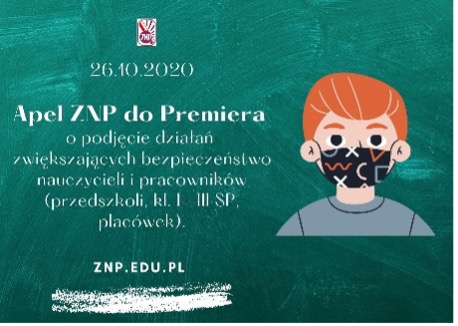Education during a pandemic
Internal practice
Duration
2020.
Reason it was developed
There were: 1. Lack of equipment and conditions for compulsory education. By introducing compulsory implementation of the core curriculum, the government shifted new responsibilities and tasks onto teachers and parents, without providing them with appropriate equipment, access to free Internet, communicators and educational platforms. The entire burden of online learning now rests on the shoulders of parents and teachers who did not receive any support. 2. Lack of professionalism of government institutions The government institutions did not cope with the new tasks: on the first day of the trial exams, the servers of the Central Examination Commission with the exam sheets crashed, and the 2020 trial exams proved to be a copy of the tasks from 2015. 3. Lack of decision to cancel the exams. The lack of a decision to cancel the eighth-grade exam, to which there are only 19 days left, causes stress and unnecessary tension among students and their families. It is well known to all reasonable people that taking this exam in the current formula, i.e. in schools, would put the health and life of 350 thousand students of eighth grade students, teachers, educational staff and their families at risk. A similar situation applies to this year's secondary school final examinations and 250 thousand of students that would take the exams. Therefore, we expect a clear message about postponing the exams or introducing another form of higher education enrolment. 4. Lack of a decision to slim down the core curriculum The new overloaded core curriculum was difficult to implement in school conditions, which the teaching community has been warning about for several years. Now it seems impossible to do it at home. 5. Lack of support The Minister does not support teachers, students and their families. He does not see the difficult conditions we all find ourselves in, he only imposes new obligations, including bureaucratic ones.
Activities
• The Polish Teachers’ Union runs an information campaign in social media: on Facebook and Twitter. • The Union also communicates with its members on a daily basis via the Union’s free phone application. • The Union along with computer scientists has launched a special Facebook support group for teachers providing remote education: "IT for education." • The Union publishes the weekly magazine Głos Nauczycielski (Teacher’s Voice) with analyses and legal advice. • Głos Nauczycielski (Teacher’s Voice) runs the current information service on the website www.glos.pl • Trade unionists have launched the Teamsy application, through which they organize video conferences at the local and national level. • The Union keeps the public informed about the situation in education through journalists (after the introduction of social isolation and the impossibility of organizing press conferences, representatives of the Polish Teachers’ Union record statements themselves and send them to radio stations and connect with television studios through Skype).
Results
• After a long time, the ministry of education responded to the appeals of the ZNP (October 2020) and awarded teachers a one-time allowance (approx. 110 Euro) for remote work, so that they could cover some of the costs related to the purchase of equipment, access to better internet or covering energy costs. • At the request of the ZNP, the association of psychologists organized telephone help for teachers and parents, who needed psychological support. • Google has responded to the call of the Polish Teachers’ Union and intends to support remote teaching and teachers. • Microsoft has responded to the call of the Polish Teachers’ Union and intends to support remote teaching and teachers. • We kept informing the ministry of education, parliamentarians and the prime minister about the problems. • We are currently running an online survey on distance learning for teachers.
Funding
ZNP.
Links
- How did COVID-19 pandemic changed the trade union work?
- 21 ZNP proposals during a pandemic
- ZNP Appeal to government to increase security during the COVID-19 crisis
- Tasks of the teaching council during a pandemic
- Psychological support for teachers
- Presentation - ZNP good practices on providing psychological support to teachers during the COVID-19 pandemic